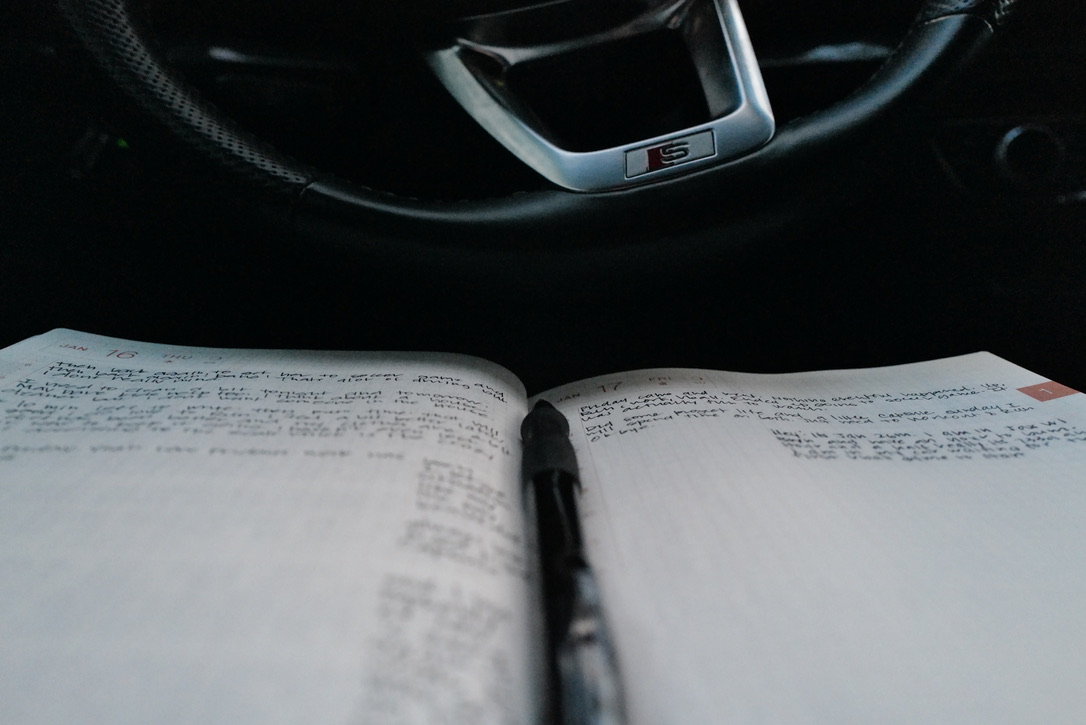
Changing Lanes and Slowing Down
October 9, 2025
For a long time, I lived in the fast lane. My days were jammed from morning to night, and I wore busyness like it proved something about my worth. If I wasn’t running from one thing to the next—meetings, commutes, deadlines, catch-ups—I felt like I was falling behind.
But looking back, I realize I was moving fast without really moving forward. It felt like driving down a highway with no destination in sight—just speeding, hoping that somehow all that motion would add up to progress. Instead, it added up to exhaustion and a nagging sense that I was living on autopilot rather than actually steering my own life. At some point, I asked myself the question I’d been avoiding: what if it doesn’t have to be this way?
That question was the beginning of a shift. I didn’t slam on the brakes or pull off the road entirely—I just changed lanes. I gave myself permission to slow down, move into a steadier rhythm, and finally breathe. At first, it was uncomfortable. Slowing down felt like I was letting things slip through my fingers. But then I realized it wasn’t about doing less—it was about doing things differently, with intention.
I began blocking off focused work time instead of bouncing between tabs all day. I shrank my to-do list to match the actual goals I cared about, not the never-ending “shoulds.” I built small routines to anchor my mornings and evenings, and in between, I let myself lean into a pace that wasn’t frantic but purposeful. And for the first time in a long time, my work started to feel less like a sprint and more like a practice.
The other piece of this puzzle was moving to remote work, which completely changed everything. No more hour-long commutes that ate up the best parts of my day. No more rushing through mornings just to sit in traffic, drained before work even began. No more office politics or wasted energy on things that had nothing to do with the work I actually loved. Remote work gave me the gift of time and the freedom to design my days in a way that makes sense for me. Instead of chasing, I could focus. Instead of fitting life around work, I could weave them together more gracefully. I could start my mornings with intention, take a walk on my lunch break, or wrap up the day without the cloud of a commute hanging over me. It wasn’t just about convenience—it completely reshaped how I approach work. Without the constant noise of an office, I found clarity. Without the performative busyness, I found productivity. And without the grind of commuting, I found energy I didn’t even realize I had lost.
Once I experienced what slowing down could do for my work, I realized I needed the same shift in my personal life. I started saying no to obligations that drained me. I simplified my routines to match the life I actually wanted—not the one I thought I “should” have. I even tackled my technology, cutting down on apps, notifications, and digital clutter that had been quietly stealing my focus. The more I let go, the more I made space for the things that really mattered.
Here’s the irony: by slowing down, I didn’t fall behind. I actually started making more meaningful progress. Remote work gave me the space to reset. Slowing down gave me the clarity to prioritize. Together, they’ve helped me step into a way of living that feels less chaotic and far more fulfilling. My days are no longer a blur. They feel like mine again—anchored, purposeful, and aligned with what matters most.
I don’t see myself going back to the pace I once kept. The slower, more intentional rhythm feels too good to give up. And remote work has given me the freedom to build life and work on my own terms. If you’ve been racing in the fast lane, white-knuckling your way through commutes, chasing, and chaos, maybe it’s time to change lanes too. Slow down. Clean things up. Create space to breathe. You might just discover, like I did, that slowing down and working differently is the fastest way to get where you really want to go.
Because at the end of the day, it isn’t about how fast we move—it’s about moving with purpose, and choosing a life that feels good to live in the lane we’re in.
Erica